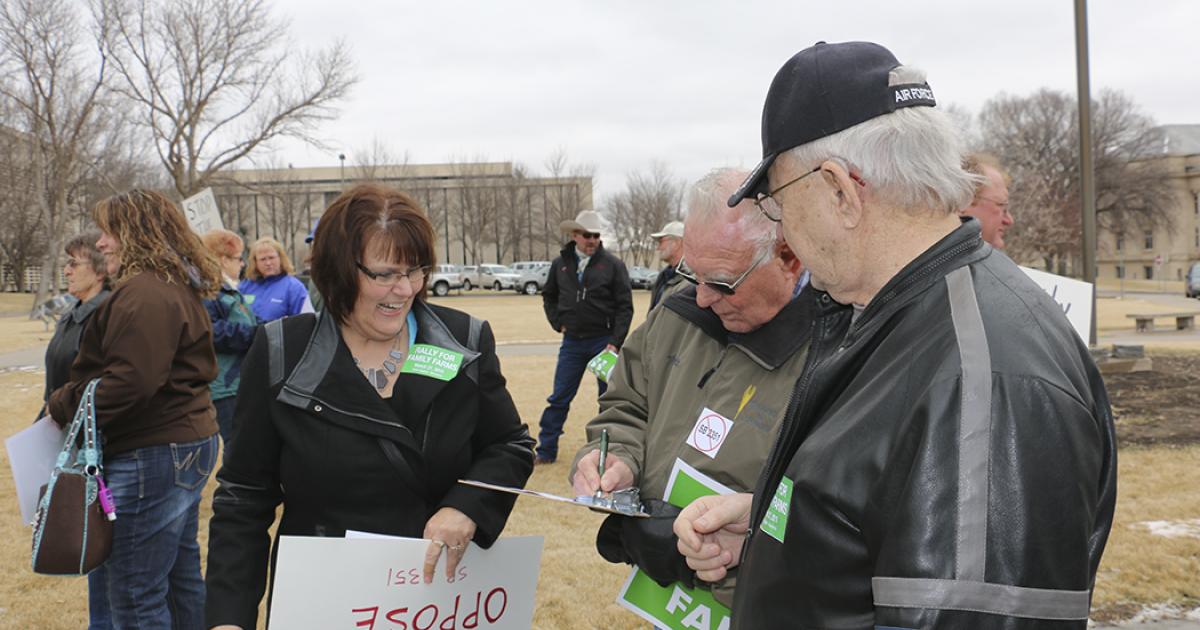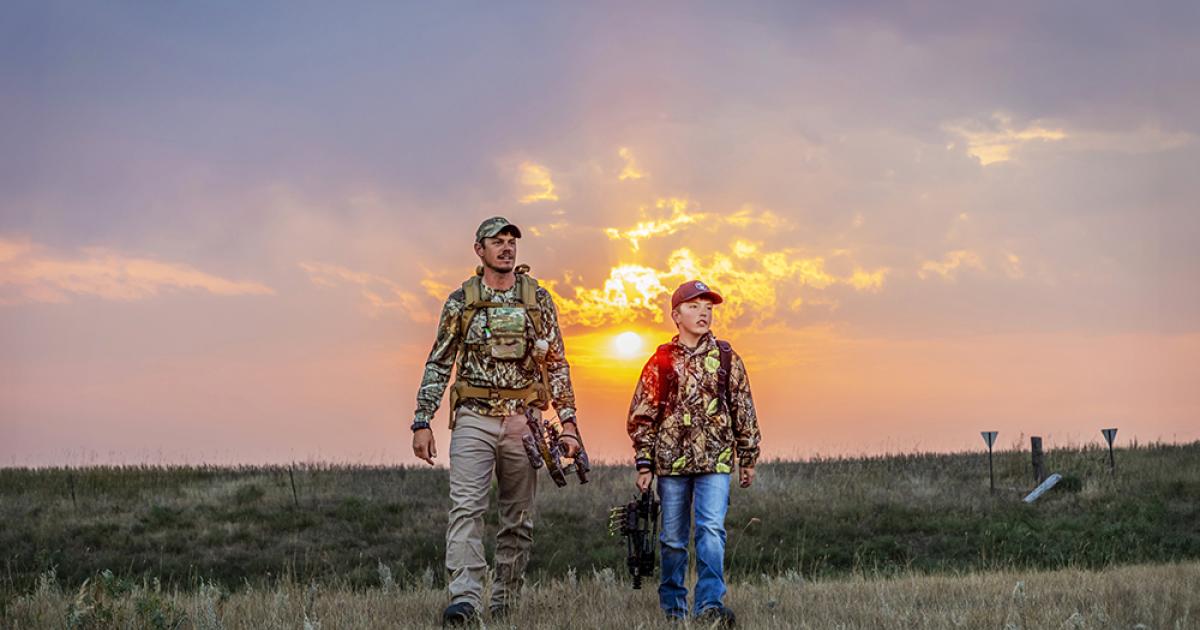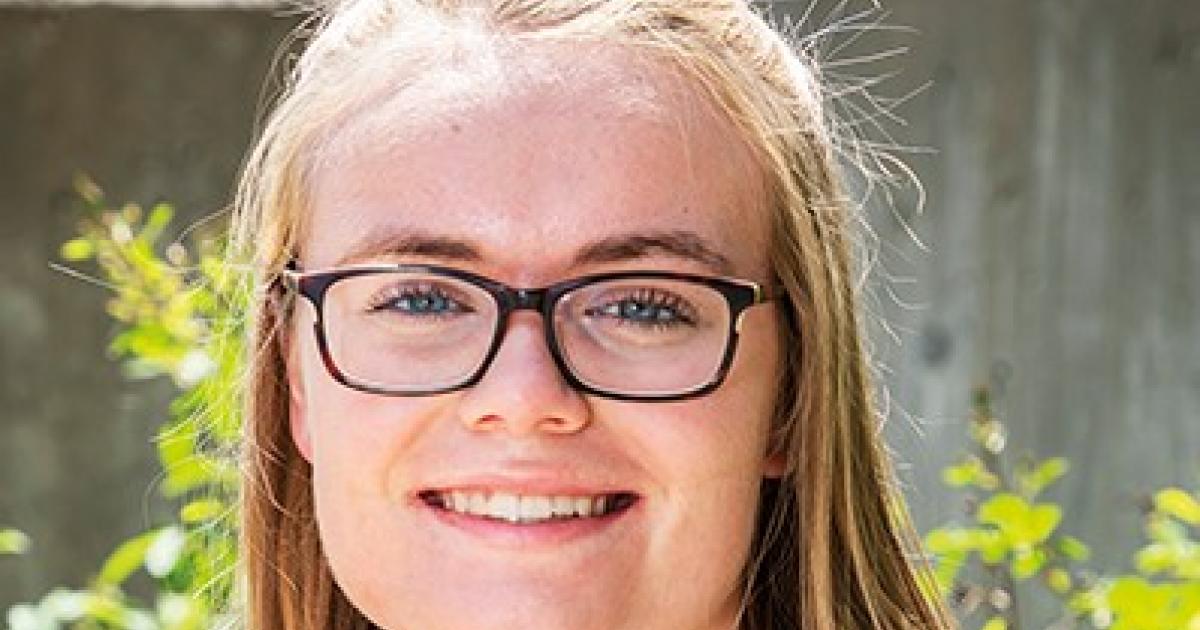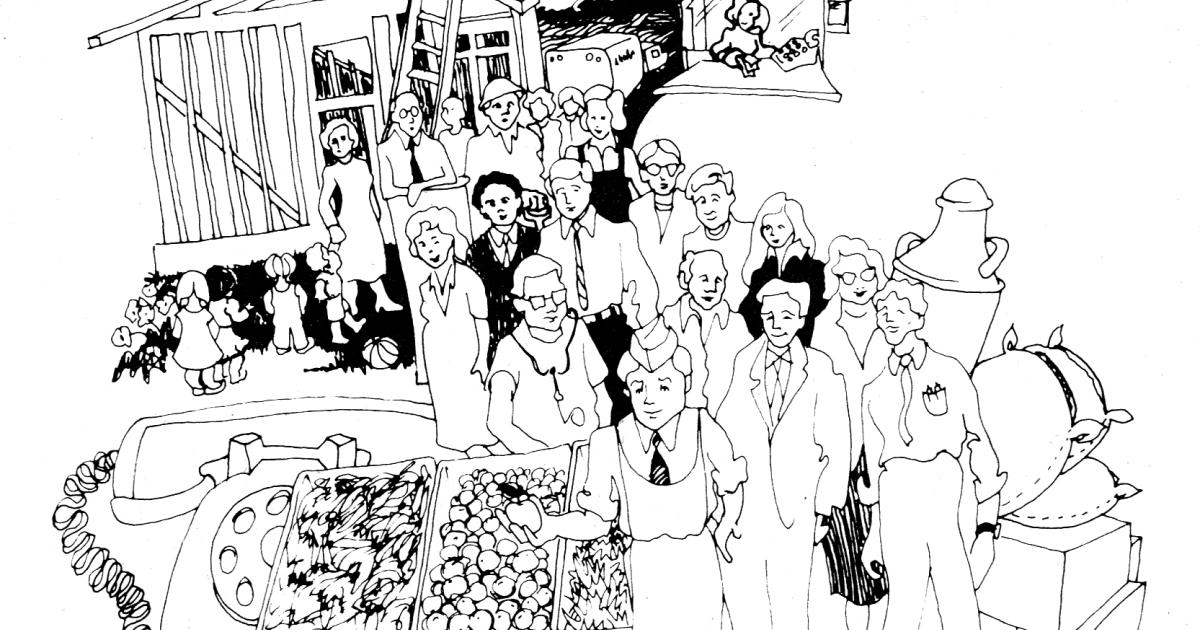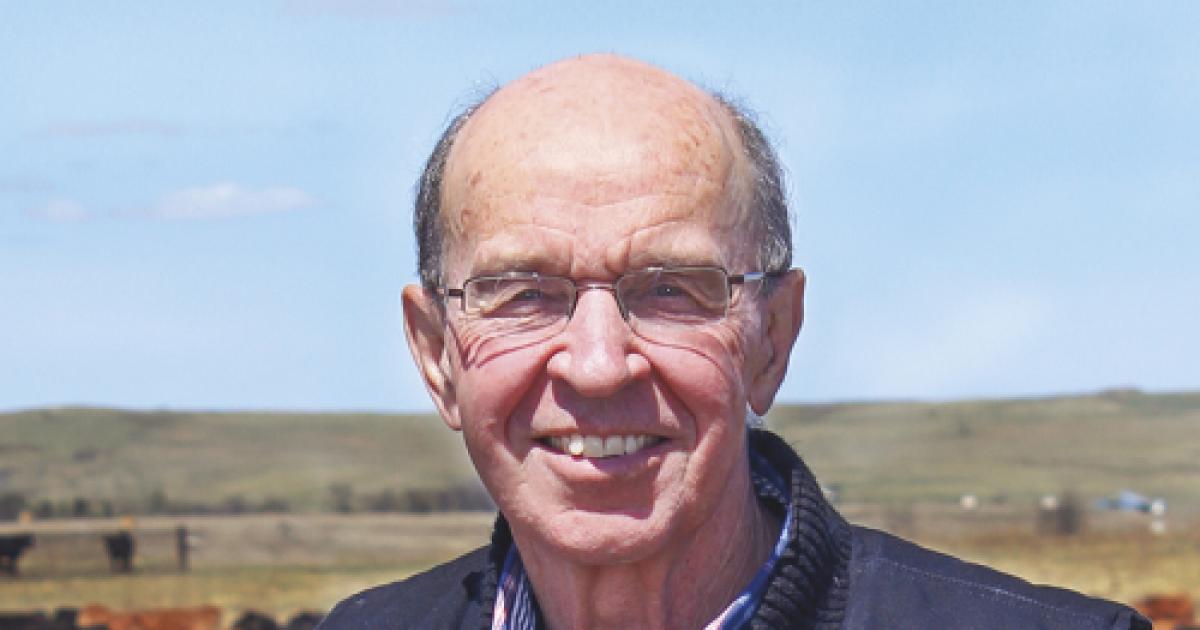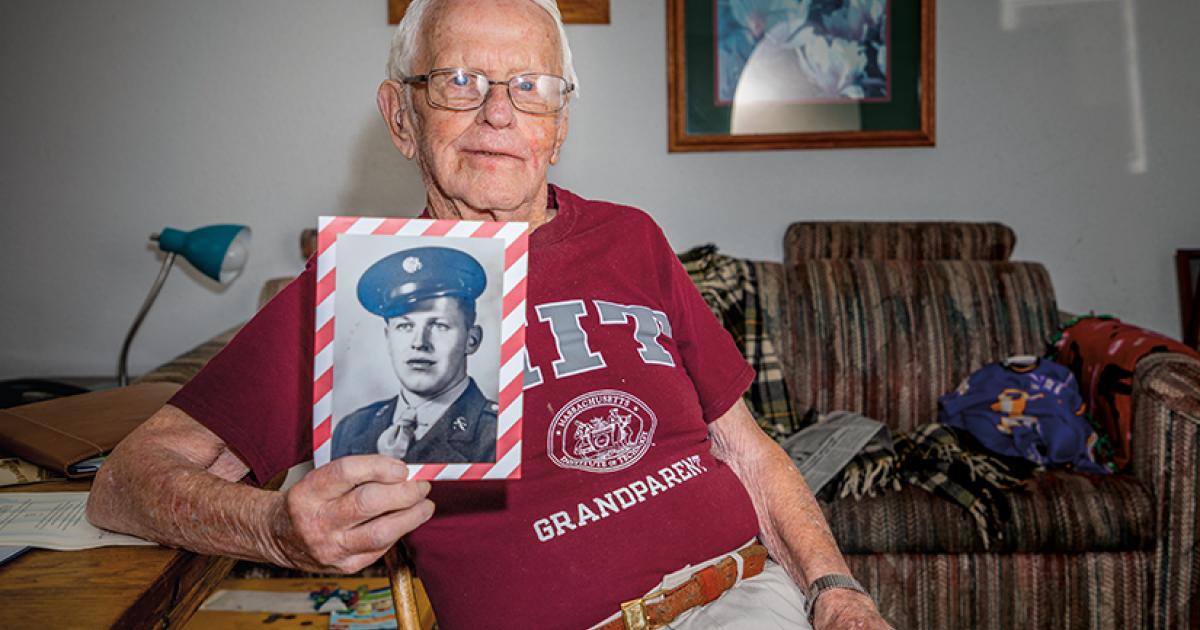Northern Plains Electric Cooperative Director Lori Carlson gathers signatures in 2015 to refer a newly passed law allowing corporations to buy, rent or lease farmland in North Dakota for dairy and swine operations. This law provided an exemption from the state’s corporate farming ban, and the petition to refer it gained over 21,000 signatures. Photo courtesy NDFU Union Farmer
Voting and elections provide a vehicle for citizens to change laws or introduce new ones they think would benefit their community.
With North Dakota’s ballot measure process, citizens can introduce a statewide ballot measure to change the North Dakota Constitution or state law. A statewide measure can be placed on the ballot by the Legislature or through a petition process initiated by the citizens of North Dakota.
Legislators can introduce a concurrent resolution to propose changes to the state constitution. A concurrent resolution must pass both the N.D. Senate and N.D. House of Representatives by a simple majority. Then, it is put to a vote of the people at the next statewide election.
North Dakota citizens can also initiate a constitutional, statutory or referendum measure through the state’s petition process. This effort requires the formation of a sponsoring committee and collecting signatures.
• Constitutional initiatives seek to change the state constitution and require petitions signed by qualified electors equal to 4% of the state’s population.
• Statutory initiatives seek to change state law, and petition signatures must be gathered from qualified electors equal to 2% of the state’s population.
• A referendum is an effort to reject legislation recently passed by the state Legislature and requires petitions signed by qualified electors equal to 2% of the state’s population. Referendums must be filed within 90 days of the legislation’s filing with the N.D. secretary of state. If the referendum measure meets the requirements, the legislation’s effective date is typically suspended until the ballot measure is decided by voters in the next election.
All citizen-led initiatives are reviewed by the N.D. secretary of state for completeness. After approval, sponsors have one year to gather the required number of signatures from qualified electors. Petition circulators and signers must be qualified voters of the area affected by the petition, and the petition must be signed in the circulator's presence. A qualified voter is at least 18 years old, a U.S. citizen, a North Dakota resident and a resident of the precinct for at least 30 days preceding the election.
The N.D. secretary of state reviews the petition and verifies the requirements are met in accordance with state law for ballot inclusion. Petitions must be turned in at least 120 days prior to the election for the measure to appear on the ballot, or it would be held until the next statewide election.
In addition to statewide ballot measures, there may also be school, city or county ballot measures. For more information on the local ballot measure process, reach out to the appropriate election official who oversees those elections.
For questions about the statewide ballot measure process or other elections-related topics, visit the North Dakota office of the secretary of state at vote.nd.gov, email soselect@nd.gov or call 701-328-4146.


